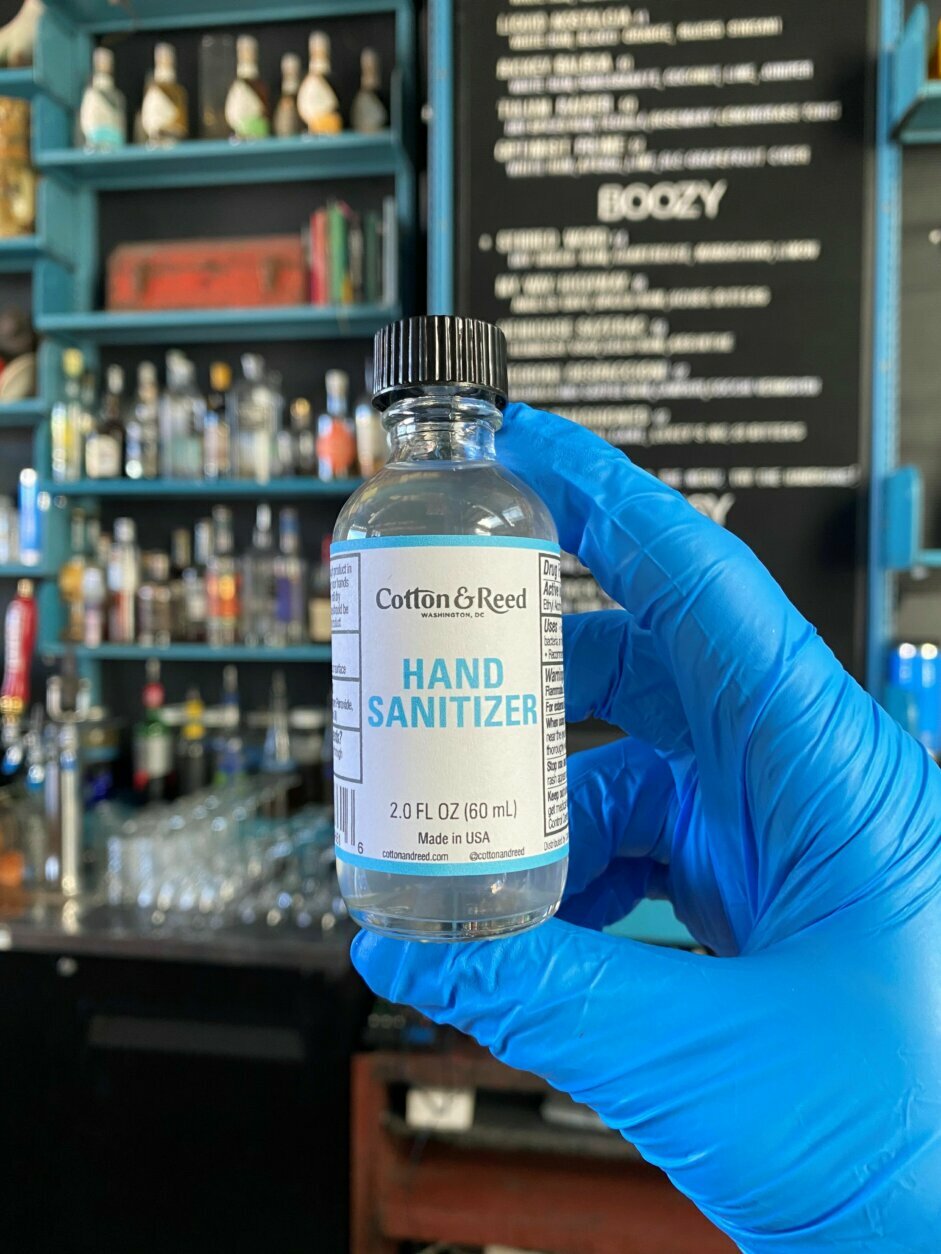
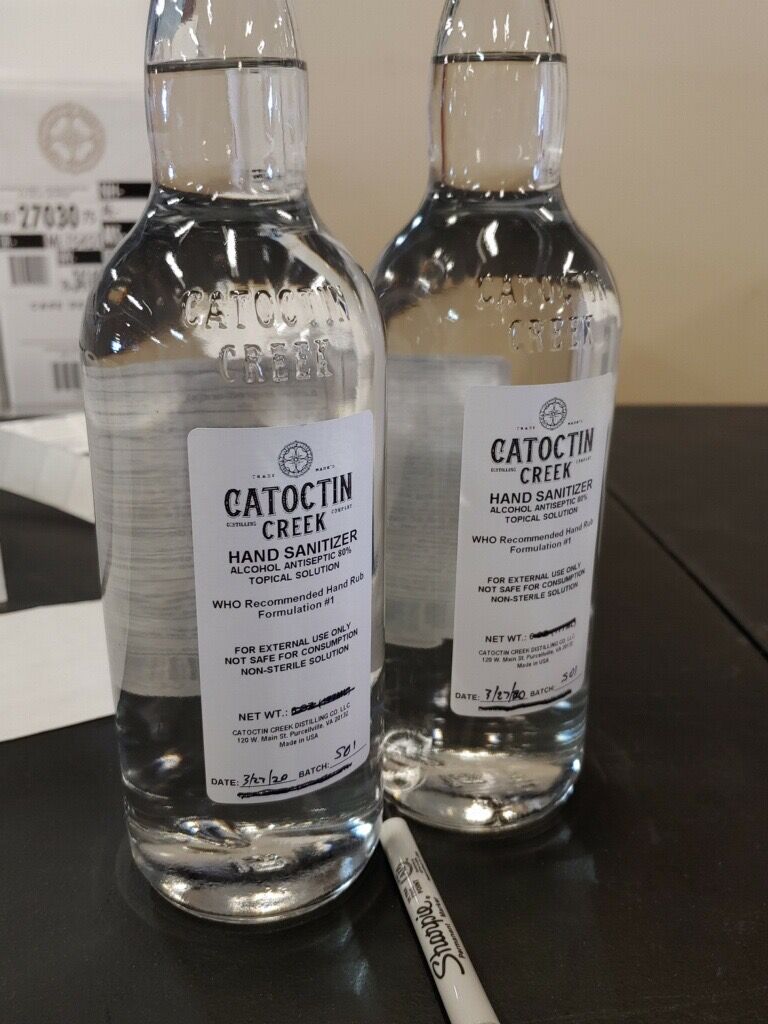
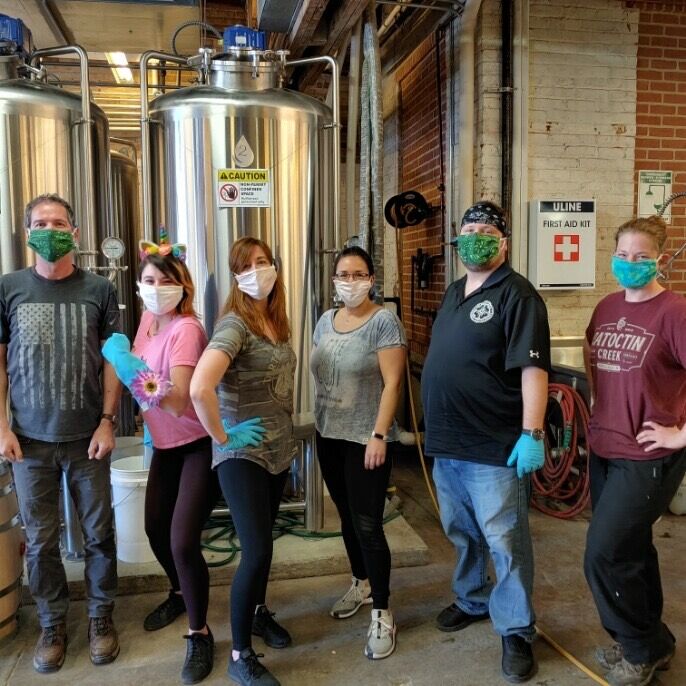
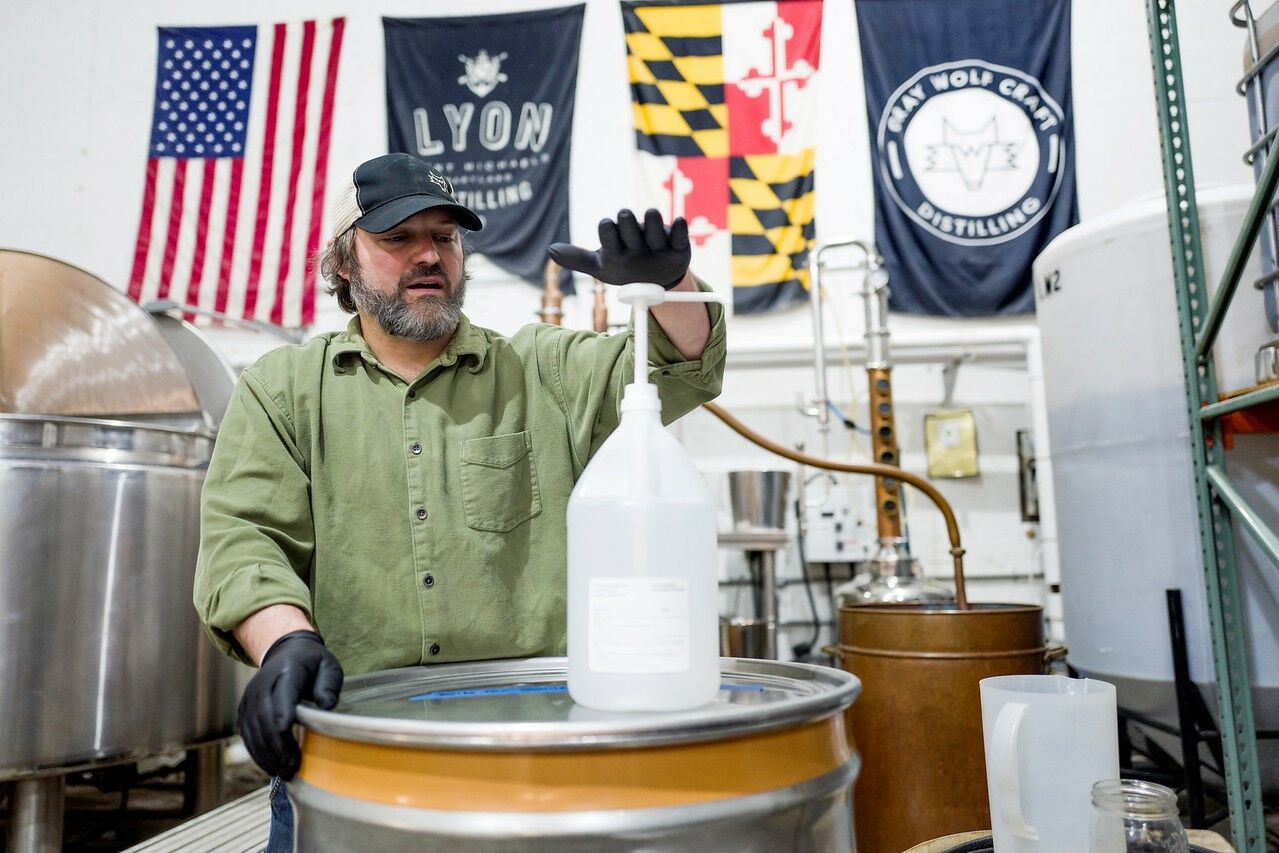
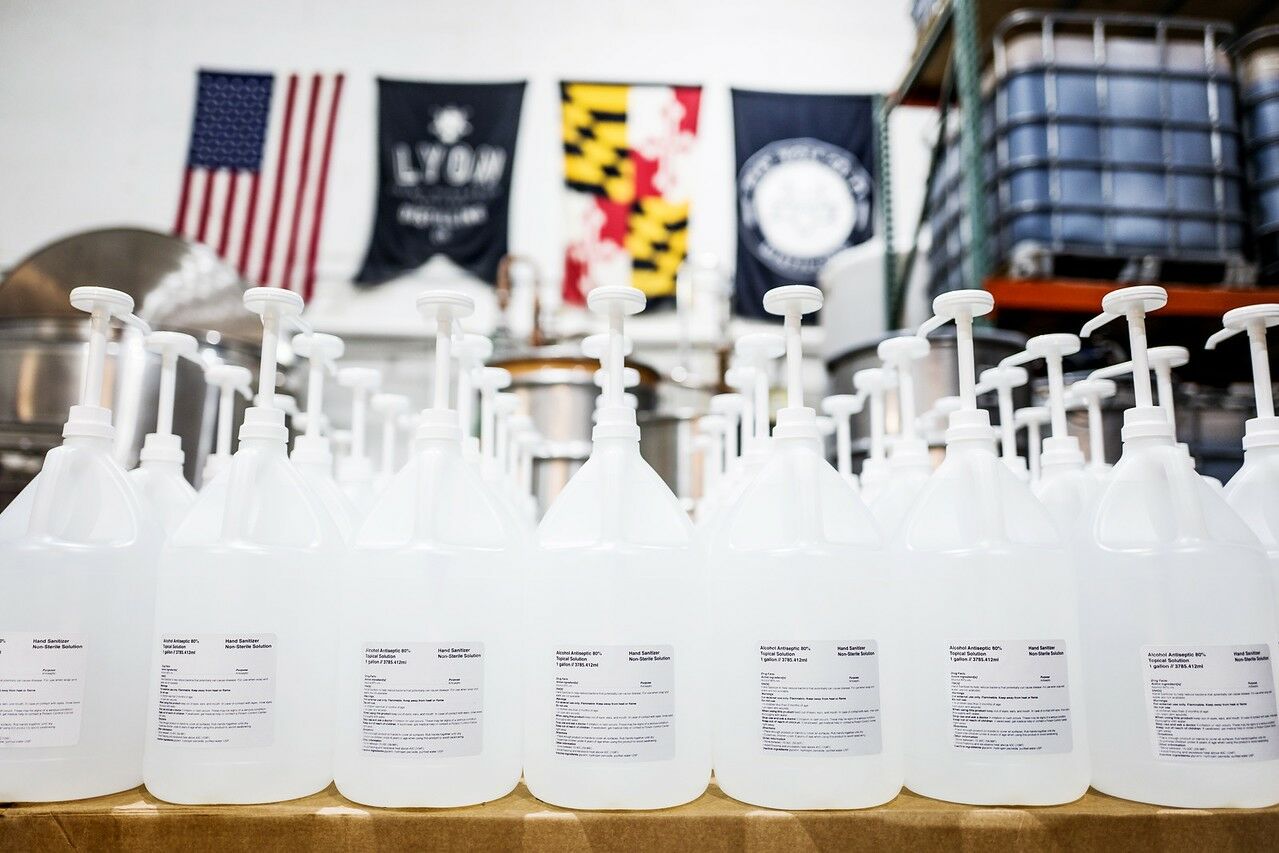
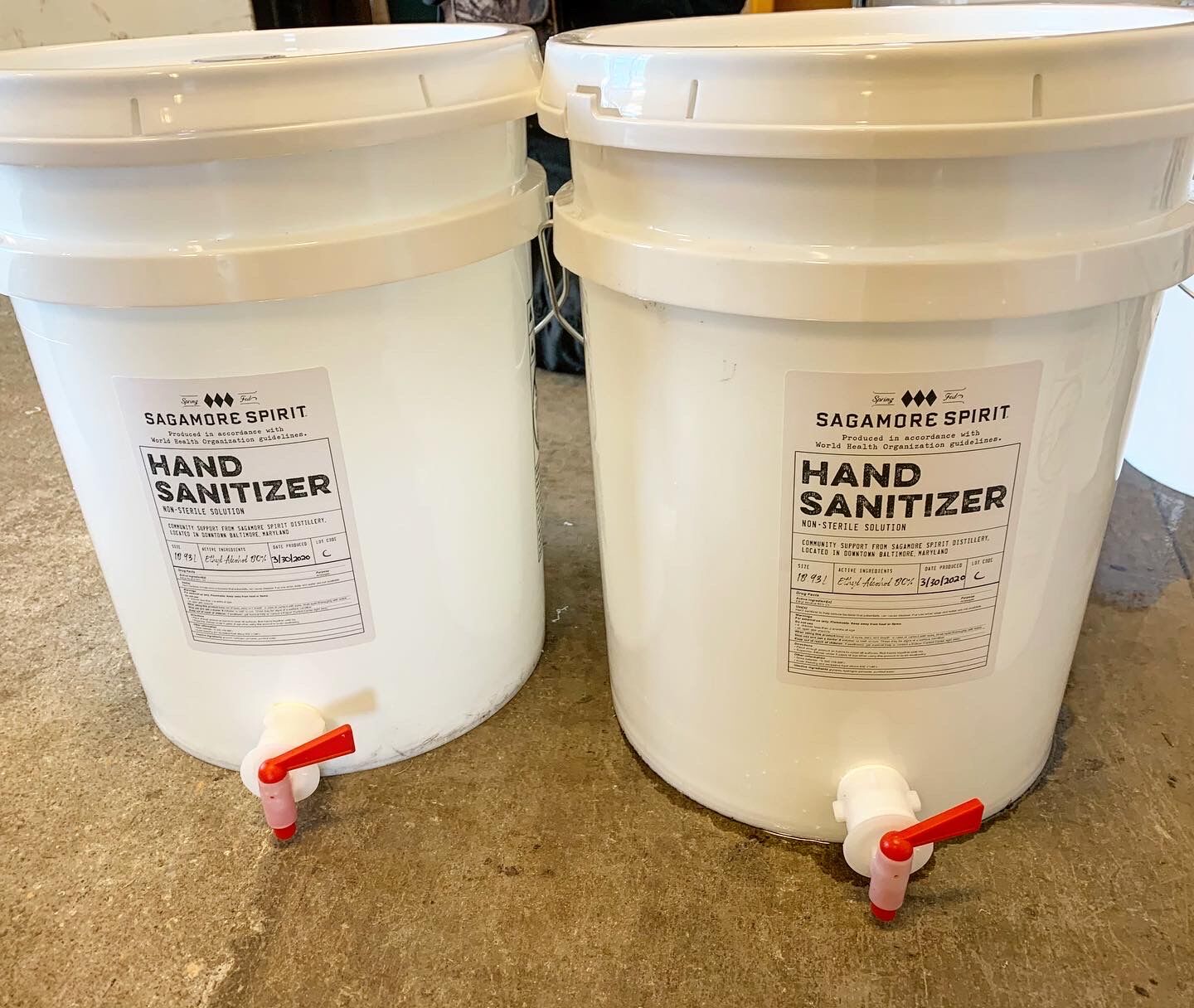
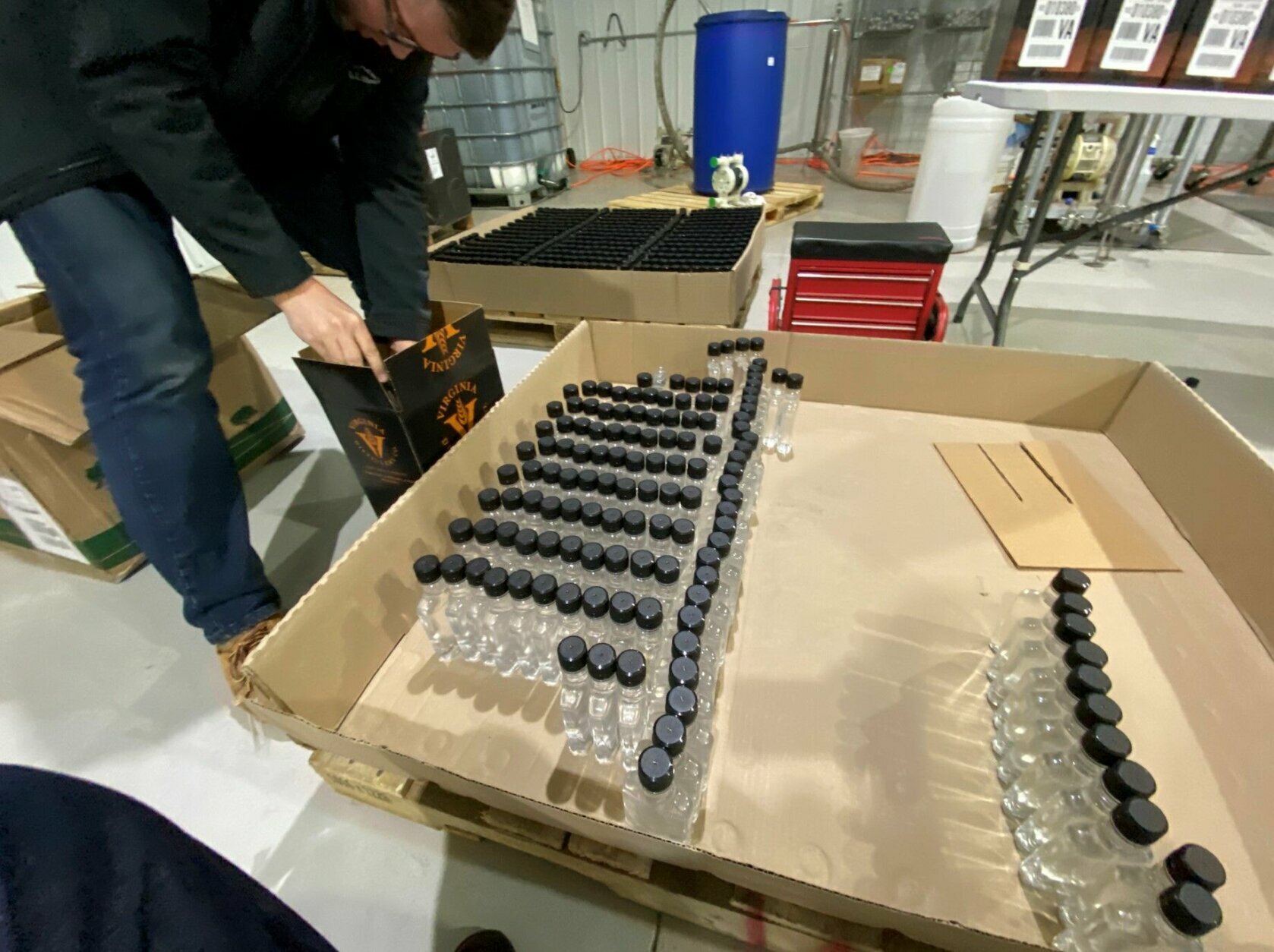
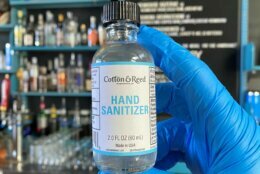
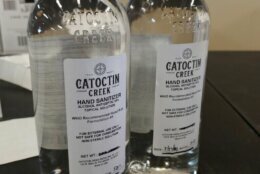
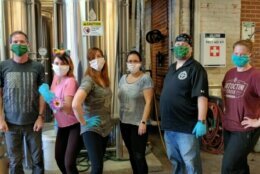
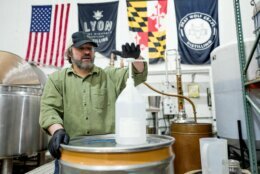
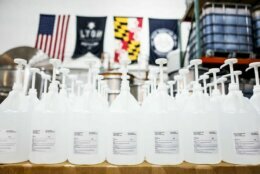
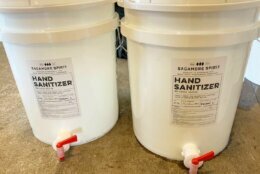

Distilleries are transforming their operations and temporarily moving away from producing whiskey, vodka and gin to help address the soaring demand for an item that’s constantly disappearing from store shelves: hand sanitizer.
The only twist that comes with this alcohol product is from the wrist: to make sure hands are clean in the age of COVID-19.
Distilleries in D.C., Maryland and Virginia are among the hundreds nationwide that have sought to do their part in addressing a need brought about by the novel coronavirus.
The hand sanitizer is often distributed to health care facilities, first responders and police departments.
- Sign up for news alerts from WTOP
- Coronavirus update: April 3
- DC, Maryland and Virginia face medical supply shortfall
- DC-area fire and police departments make coronavirus contingency plans
- Why local grocery workers say they should be classified as ‘first responders’
- Coronavirus test results in D.C., Maryland and Virginia
- Coronavirus FAQ: What you need to know
The distilleries would like to keep producing sanitizer amid the pandemic, but say a regulatory issue is keeping them from making more. They’ve enlisted supporters in Congress and the Distilled Spirits Council of the United States (DISCUS) to help cut through the red tape.
DISCUS is urging the Food and Drug Administration to update its guidance to permit distillers to use what is known as undenatured alcohol in hand sanitizer. That’s the food-grade ethanol used to produce what consumers normally purchase for cocktails.
But under FDA guidelines, “denatured” alcohol must be used for sanitizer, which is treated with bittering agents so it won’t be consumed. The liquor industry acknowledges the need for that during normal times, in part so that small children don’t accidentally digest sanitizer in the home.
DISCUS President and CEO Chris Swonger said more than 600 distilleries across the country have pivoted to produce sanitizer during the crisis. They have been following guidelines for hand sanitizers set by the World Health Organization.
But the FDA regulations prevent many of them from stepping up production, in part because bittering agents used in denatured alcohol can be difficult to remove from equipment when it’s used to resume producing their regular products.
“It’s a pivotal moment for the distilled spirits industry,” Swonger said. “There’s craft distillers, large and small, all around the country, and we’re very, very proud of all of them stepping up and doing their part to try to combat the coronavirus.”
Swonger said his industry is trying to work with the FDA and fully understands the safety concerns, but distilleries just want to be able to help at a time when their own businesses are suffering.
The FDA said in a statement that it appreciates the efforts distilleries are making. The agency has published guidance related to the production of hand sanitizer.
Still, the agency said it has safety concerns that must be addressed.
“Every year, there are a number of adverse events resulting from children who intentionally or unintentionally drink hand sanitizer. These events are increasing during the COVID-19 pandemic,” the FDA said in a statement.
The agency noted that in an 18-month-old child, it only takes a small amount to be potentially lethal, and that consumer safety is a top priority.
Still, members of Congress are pressing the FDA to be more flexible. Kentucky Reps. Andy Barr and John Yarmuth recently wrote a letter to FDA Commissioner Stephen Hant.
“Through the current guidance, the FDA is standing in the way of hundreds of thousands of gallons of hand sanitizer from being produced and given to those on the front lines battling this pandemic,” the lawmakers said.
In the most recent sweeping legislation passed by Congress, the Federal Excise Tax on hand sanitizer production was temporarily removed, to help distilleries cover their costs. But that provision also requires a distiller to follow FDA guidance to get that tax break.
Distilleries, like many other businesses, are dealing with major economic hardships during the pandemic.
“Many of these distilleries have had to shut down their tour business and tasting rooms,” Swonger said. “We’ve heard that 40% of these distilleries have had to lay folks off.”
But as the crisis continues, he said those that can still carry out operations want to help in any way they can.
“I would have to say we would all rather be making great American whiskey, or great distilled spirits products,” Swonger said. “But in the meantime, the industry has really stepped up and is trying to do its part to contribute to safer communities.”
Editor’s note: This story has been updated to correctly identify a Maryland distillery in two captions of the photos in the gallery at the top of this story.








